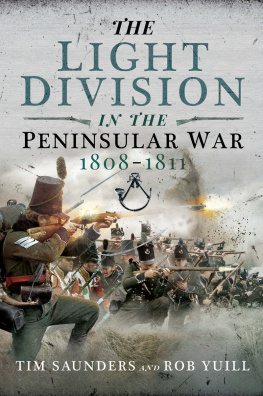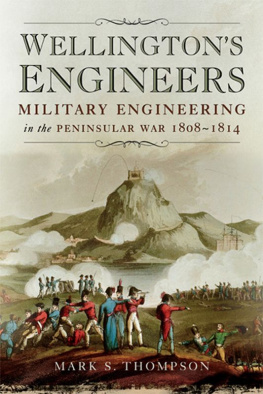ROUGH SKETCHES
OF THE
LIFE OF AN OLD SOLDIER:
DURING A SERVICE IN THE WEST INDIES;
AT THE SIEGE OF COPENHAGEN IN 1807;
IN THE PENINSULA AND THE SOUTH OF FRANCE IN THE
CAMPAIGNS FROM 1808 TO 1814, WITH THE LIGHT DIVISION;
IN THE NETHERLANDS IN 1815; INCLUDING THE BATTLES OF QUATRE BRAS AND WATERLOO: WITH A SLIGHT SKETCH
OF THE THREE YEARS PASSED BY THE ARMY OF OCCUPATION
IN FRANCE, Ac. &c. &c.
BY LIEUT.-COLONEL J. LEACH, C.B.
LATE OF THE RIFLE BRIGADE, AND PREVIOUSLY OF THE 70TH REGIMENT.
This edition is published by PICKLE PARTNERS PUBLISHING
Text originally published in 1831 under the same title.
Pickle Partners Publishing 2011, all rights reserved. No part of this publication may be reproduced, stored in a retrieval system or transmitted by any means, electrical, mechanical or otherwise without the written permission of the copyright holder.
Publishers Note
Although in most cases we have retained the Authors original spelling and grammar to authentically reproduce the work of the Author and the original intent of such material, some additional notes and clarifications have been added for the modern readers benefit.
TO
THE 70TH REGIMENT,
AND
THE OLD 95TH,
(NOW THE RIFLE BRIGADE),
IN WHICH TWO CORPS
I PASSED ONE AND TWENTY EVENTFUL YEARS,
THE FOLLOWING PAGES
Are Inscribed
BY THEIR OLD AND SINCERELY ATTACHED
COMRADE,
J. LEACH.
PREFACE.
As it is the fashion now-a-days for every one to become an author, I see no reason why I should not try my hand at it also, and let my book run the same risk of being criticised, lashed, and abused by the literati (if, indeed, they deign to peruse it), as is every day the case with some production or other, and to which every one, who is bold enough to make similar experiments, must make up his mind.
Such as mine is, forth it goes to the world; and it must be taken for better for worse.
During many years of active service, I kept a daily journal, in which I inserted matters and things as they appeared to me at the instant; and from which journals, aided by a tolerably fair memory, and some old notes and memoranda, the following pages were put together in a rough state many years ago, and may therefore, with great propriety, be styled "Rough Sketches."
I pretend not to any thing resembling a history of the Peninsular War. A very old Light Division comrade of mine, Colonel NAPIER, has already done it in so masterly a style, as to throw every other work on the same subject comparatively into the shade.
The operations of the Light Division of the Peninsular army I have detailed more minutely than those of any other. That division was, during a succession of campaigns, much detached from the mass of the army, having ample employment at the outposts. But I have not omitted to mention, also, the movements of other divisions, whenever an opportunity offered for my becoming acquainted with them.
It is unnecessary to remind my military readers, that as I never, for one hour in my whole life, held a staff appointment, but always did duty with my regiment, it was impossible that I could be acquainted, on every occasion, with the general combined movements of so large an army.
Those, however, who may have patience to wade through my "Rough Sketches," will find in them a little about voyages, storms, shipwrecks, yellow fevers, musquitos, sangaree and sangarorum, sharks, dolphins, and flying-fish; night marches and day marches, camps and bivouacs, advances and retreats, skirmishes, battles, and sieges; signoras, waltzes, boleros, and fandangos; bull-fights, wild boar shooting, wolves, and red deer; British soldiers, and French, Spanish, and Portuguese, all of which I have endeavoured to depict in their true colours.
If I have failed in my attempt, I am sorry for it; but my regret will be infinitely greater, if any of my brother-soldiers, whether of the cavalry, infantry, artillery, or engineers, either of the Peninsular army, or of that which fought at Waterloo, should accuse me of not having rendered due praise to the conduct of their respective divisions, brigades, or regiments, on particular occasions. Let me again remind them, that I was always regimentally employed; and that if any such omissions exist in my book, they are quite unintentional.
That they will be viewed in that light, by the liberal-minded, I entertain neither fear nor doubt.
Forty-nine out of every fifty of the scenes which I have here endeavoured to describe, I was an eye-witness of; and, on one or two occasions, when agues and fevers placed me for a short period on the sick list, the events which took place in the interim I became acquainted with, by being allowed to have access to the log-books of some one or other of my brother-officers. The thread of the narrative is therefore unbroken.
CHAPTER I.
Join my regiment in Jersey. Embark for England. Winter at Chatham. The 52d regiment made Light Infantry. New system of drill introduced. Encamp at Shorncliffe in Kent. French camp and flotilla at Boulogne. Invasion threatened, and precautions taken by Sir John Moore. The Duke of' York reviews the troops at Shorncliffe. Sudden order for our regiment to embark for the West Indies. Unfortunate occurrence on the march from Shorncliffe to Portsmouth. Remarks thereon. Embark and sail for Barbadoes. Tremendous storm. Various occurrences on the voyage. Arrive at Barbadoes. First impressions as to climate, &c. Death of the Commander-in-Chief of the West Indies. We proceed to Antigua. The harbour and dock-yard. Disembark at midnight. Lose my baggage. Scarcity of fresh water in Antigua. The regiment suffers dreadfully from yellow fever. Its losses. Hurricane. Officers' funerals. The military governor and his brigade-major die. A receipt for yellow fever. Dancing and other gaieties. Death of Sir William Myers, the new Commander-in-Chief in the West Indies. Terrible mortality in his family. Death of the new Governor of Antigua. Great mortality in the 96th regiment in Antigua. A French squadron. Dominica is attacked. The French are repulsed by the 46th regiment. We expect a [n attack] of Antigua. Great mortality in the 96th regiment in Antigua. A French squadron. Dominica is attacked. The French are repulsed by the 46th regiment. We expect a visit from the same squadron at Antigua. Preparations for its reception. We are reinforced. Long marches. Sudden death of several soldiers from excessive heat. The 68th regiment is sent to Antigua. Its immense losses by climate. Horse-races and balls at St. John's. More funerals. Lord Nelson arrives in search of the French and Spanish squadrons. He returns to Europe. My health begins to suffer. A medical board orders me to Europe for its restoration. My own ideas as to slavery. Take my passage for Europe. Sail to Tortola. Large homeward-bound fleet. Dreadful gales, and other mishaps on the voyage home. Anchor in Dublin Bay. Quarantine. Land at Dublin. Proceed to England.
THE same year in which the British army gained never-fading laurels in Egypt, I obtained a commission in the 70th regiment, and shortly after seeing my name in the Gazette, was ordered to join in the island of Jersey. I felt that delight which I fancy is experienced by most youngsters, on making an escape from school, putting on a scarlet coat, epaulet, cocked hat, and a tremendously long feather, to say nothing of the false queue affixed to a head of hair plastered with pomatum and well powdered (the custom of those days), together with sundry et ceteras too well known to military men to need a further detail.






